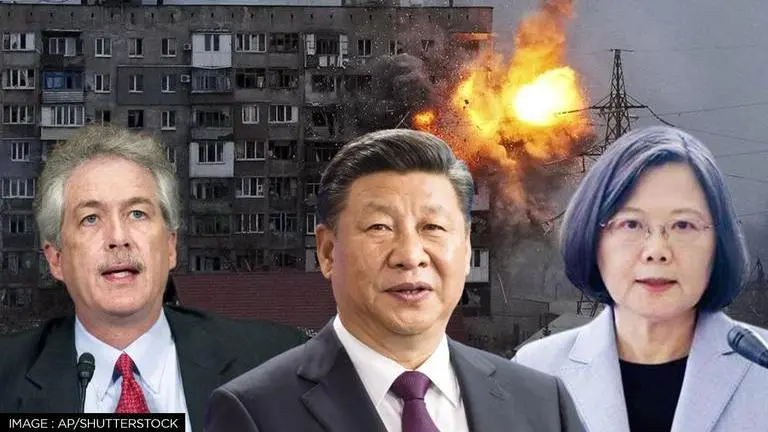Updated 21 July 2022 at 12:42 IST
Russia's war in Ukraine influencing China's decision on 'when & how' to invade Taiwan: US
Russia's war in Ukraine is a learning step for China to determine "how and when" it must invade Taiwan, said CIA head, Bill Burns at the Aspen Security Forum.
- World News
- 3 min read

Russia's war in Ukraine is a learning step for China to determine "how and when" it must invade Taiwan, said the chief of the US' Central Investigation Agency, Bill Burns. Speaking at the Aspen Security Forum in the Rocky Mountains, the director noted that Moscow's invasion is affecting Beijing's calculations, upping the risks for Taipei. Burns further warned that given the current geopolitical landscape and Beijing's growing influence in the South East Asian region, Chinese President Xi Jinping could launch an incursion on Taiwan following a key meeting among Communist Party members later this year.
"The Chinese leadership is trying to study the lessons of the Russian invasion of Ukraine and what it tells them. Our sense is that it probably affects less the question of whether the Chinese leadership might choose, down the road, to use force to control Taiwan but how and when," the CIA director, Burns, said at the convention.
The chief of the intelligence agency noted the "risks of that (an invasion of Taiwan) have become higher" after ascertaining Xi's determination to gain control of self-proclaimed independence of Taiwan. "I suspect the lesson Chinese leadership and military are drawing is that you have got to amass overwhelming force if you are going to contemplate that in the future," Burns said. He suggested that Beijing noticed Moscow's "strategic failure" operation in Kyiv, which botched the suspected primary motive of toppling the Zelenskyy government led by an eventual takeover.
Burns also believed that China had observed in the Russia-Ukraine war if "you don't achieve quick, decisive victories with all underwhelming force." He added that Beijing understood that it has to grip the information space to "do everything one can to shore up the economy against potential sanctions." Burns, however, reiterated that although China did step up energy purchases from Russia, it is cautiously treading the path to ensure the engagement does not violate western sanctions.
Advertisement
On Taiwan:
— Aspen Security Forum (@AspenSecurity) July 20, 2022
Director Burns outlines what he thinks the Chinese have learned from Russia's invasion and subsequent war in Ukraine. #AspenSecurity pic.twitter.com/77YGq7doMs
China-US-Taiwan: A complex equation
The island of Taiwan is roughly 100 miles from the southeast coast of China. Xi Jinping considers the territory part of the Chinese mainland and repeatedly called for "peaceful reunification", further warning that Beijing would use force if necessary as he believes Taiwan's rejoining "must be fulfilled." Contrarily, Taiwan sees itself as a self-ruled region led by a democratic government under the leadership of Taiwanese President Tsai Ing-Wen.
Taiwan deepened its ties with China's economic rival the US in the past year, wildly infuriating the CCP leadership. Noting Taipei's growing bond with Washington, China infringed the Taiwan Air Defence Identification Zone (ADIZ), with nearly 56 incursions in one day. The situation is all the more alarming because any military attempt by China would dwarf Taiwan.
Advertisement
The US, on the other hand, stands at a complex juncture where it recognises the One China Policy (under which Taiwan is considered a breakaway province of China) and also asserts support for Taipei. After decades of ambiguity over Taiwan relations, US President Joe Biden earlier this year publicly admitted that Washington will not step back in case China invaded Taiwan. Meanwhile, as the situation turns tougher in the southeast Asian region, Biden is expected to speak to Xi "within 10 days."
(Image: AP/Shutterstock)
Published By : Dipaneeta Das
Published On: 21 July 2022 at 12:42 IST
